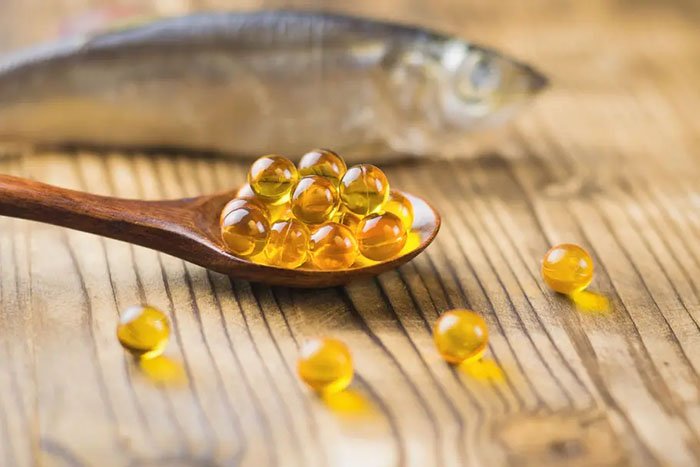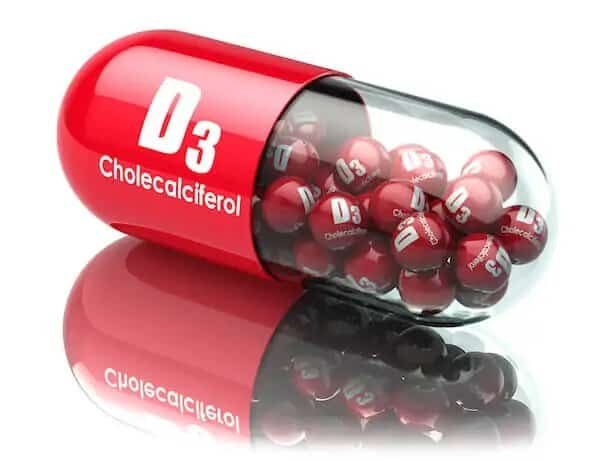turmeric Anti-Aging effects
Top #7 Turmeric: Anti-Aging effects If curcumin can really help prevent heart disease, cancer and Alzheimer’s, it would

Essential to life, vitamin D3 is not just another vitamin. It is a fat-soluble vitamin supplied exogenously through food and endogenously through exposure to the sun. It is the only one that our body produces itself at 90%. As such, it may also be referred to as hormone.


Known as “sunshine vitamin,” vitamin D3 is similar to the one synthesized by the body upon exposure to the sun. Because of this similarity, doctors and nutritionists often recommend supplement to meet daily requirements, especially with aging skin.
In addition to correcting a deficiency in vitamin D3, the best known effect of this vitamin is the maintenance of the phosphocalcic balance by increasing the intestinal absorption of calcium and phosphorus (required for the formation of bones) from 30 to 40% and 80%, respectively. Once swallowed, it is immediately absorbed from the small intestine along with dietary lipids through a specific receptor. It is then transported to the liver where it is metabolized and then carried to the kidneys where it is activated.
Liver, skin, spleen, brain and bones are prime sites for storing this vitamin, while bile is the main route of excretion.
The remaining part of vitamin D3 is used to strengthen the immune system and maintain muscle strength. It is also used to prevent and treat atopic eczema and high cholesterol, as well as to improve cognition. It also helps prevent breast and colon cancer, heart disease and multiple sclerosis.
Apart from skin synthesis, food can constitute an important intake of vitamin D3. Oily sea fish such as salmon, sardines, herring, tuna, mackerel, but also trout and oysters are very good suppliers of this vitamin. Then come the offal (livers), eggs, cheeses, butter and then milk in last position.
Due to the difficulty in obtaining enough vitamin D3 from natural food sources or through exposure to the sun alone, supplements may be necessary.
Especially since various factors reduce the production by the skin, including increased skin pigmentation, aging of the skin and topical application of sunscreen.
Recommended daily intake : recommended intake is at 400–800 IU/day or 10–20 micrograms. However, some studies suggest that a higher daily intake of 1,000–4,000 IU (25–100 micrograms) is needed to maintain optimal blood levels.

Microencapsulation is a good option for supplementing safely with vitamin D3. This process of immobilizing the active ingredients in a matrix or capsule has several advantages such as protection from conditions such as heat, mold, oxygen. (unlike vitamin D oil which can get rancid quickly). Controlled or gradual release with targeting of specific areas allowing direct delivery to the required area.
Top #7 Turmeric: Anti-Aging effects If curcumin can really help prevent heart disease, cancer and Alzheimer’s, it would
Top #6 Arthritis Patients Respond Very Well to Turmeric Supplements Share on facebook Share on twitter Share on
Top #5 Improved Antioxidant Capacity Share on facebook Share on twitter Share on pinterest Share on email Antioxidants
Top #4 Turmeric could Be Useful in Preventing and Treating Alzheimer’s Disease Share on facebook Share on twitter
Top #3 Turmeric Can Help Prevent (And Perhaps Even Treat) Cancer Share on facebook Share on twitter Share
Top #2 Turmeric Lowers Your Risk of Heart Disease Share on facebook Share on twitter Share on pinterest
Statements on this website have not been evaluated by the Food and Drug Administration. Products are not intended to diagnose, treat, cure or prevent any disease. If you are pregnant, nursing, taking medication, or have a medical condition, consult your physician before using our products.
Disclaimer: this site is not a part of the Facebook™ website or Facebook Inc. Additionally, this site is NOT endorsed by Facebook™ in any way. FACEBOOK is a trademark of FACEBOOK, Inc.

Your Privacy Is Important To Us
This website uses cookies so that we can provide you with the best user experience possible. Cookie information is stored in your browser and performs functions such as recognising you when you return to our website and helping our team to understand which sections of the website you find most interesting and useful.
Strictly Necessary Cookie should be enabled at all times so that we can save your preferences for cookie settings.
If you disable this cookie, we will not be able to save your preferences. This means that every time you visit this website you will need to enable or disable cookies again.
More information about our Cookie Policy